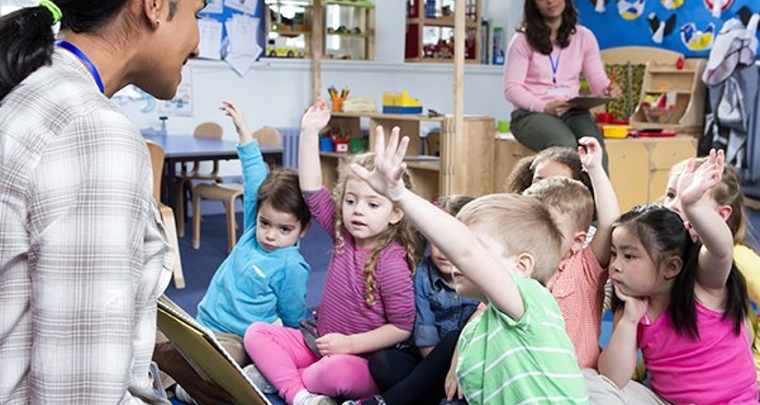What You Can Learn from Observing Children

This article was previously published by ChildCare Education Institute (CCEI), an IACET Partner, and is republished here with permission because IACET deemed it to be a resource that is relevant to IACET stakeholders.
In this month’s newsletter, child observation takes front and center. We discuss the importance of gathering observations to complete assessments, engage with families, and make curriculum decisions. Most states have identified a list of skills that children should be able to demonstrate as they head into public school. Assessment tools are likely to mirror these lists of skills and a teacher’s observations will help them complete these assessment tools.
However, there are other things you can learn about children that might not be listed on the state-sanctioned list of school-readiness skills. Observing children can help teachers get to know children and engage with them in meaningful ways that transcend the required assessments.
Observing children can tell you a lot about how they approach new situations, tolerate frustration, and adapt to change. These are elements of a child’s temperament and each child is unique in how they navigate through the world. When teachers notice that a child approaches new experiences timidly, they can decide to create space for the child to warm up to the experience at their own pace. Teachers can decide to provide advance warnings about upcoming changes or new experiences that will soon be coming to the learning environment. They can slowly introduce new experiences for the children who prefer to approach things more slowly.
When a teacher recognizes that a child becomes easily frustrated with difficult challenges, they can make sure to adapt activities or provide scaffolding to support the child’s learning. The teacher can also teach the child self-calming strategies that they could use when they begin to feel frustrated.
Teachers who are careful observers notice changes in children from day to day. They may note that a typically active child is uninterested in playing. They could notice that a child who is usually able to focus their attention, is suddenly distracted for much of the day. In other words, they notice when a child is “off”, which could be a sign that the child is getting sick.
Most importantly, teachers with strong observation skills can pick up on changes in skills and behavior that may indicate that something more serious is going on with the child. These observations can become the basis of some very important conversations with the child’s family.
Take some time in the coming weeks to not only make note of the skills on your developmental checklist but also of those underlying temperament traits that define how children interact within the environment.
About the Author

ChildCare Education Institute®, a division of Excelligence Learning Corporation, provides high-quality, distance education certificates and child care training programs in an array of child care settings, including preschool centers, family child care, prekindergarten classrooms, nanny care, online daycare training and more. Over 150 English and Spanish child care training courses are available online to meet licensing, recognition program, and Head Start Requirements. CCEI also has online certification programs that provide the coursework requirement for national credentials including the CDA, Director and Early Childhood Credentials. CCEI, a Council for Professional Recognition CDA Gold StandardT training provider, is accredited by the Distance Education Accrediting Commission (DEAC), is recognized by the Council for Higher Education Accreditation (CHEA) and is accredited as an Authorized Provider by the International Accreditors for Continuing Education and Training (IACET). https://www.cceionline.com/
